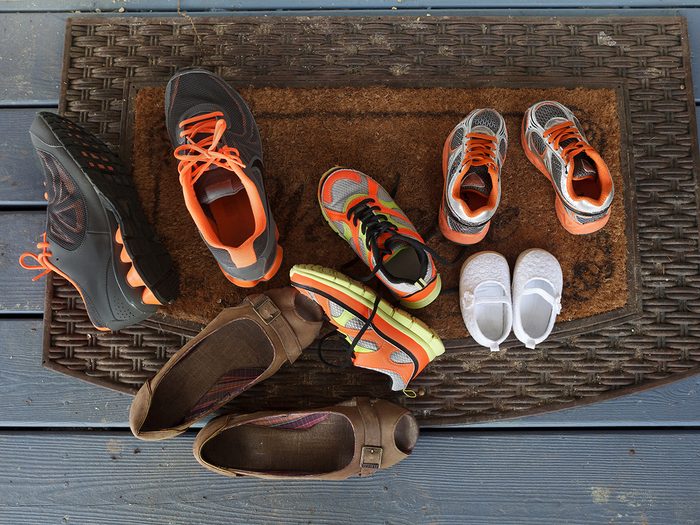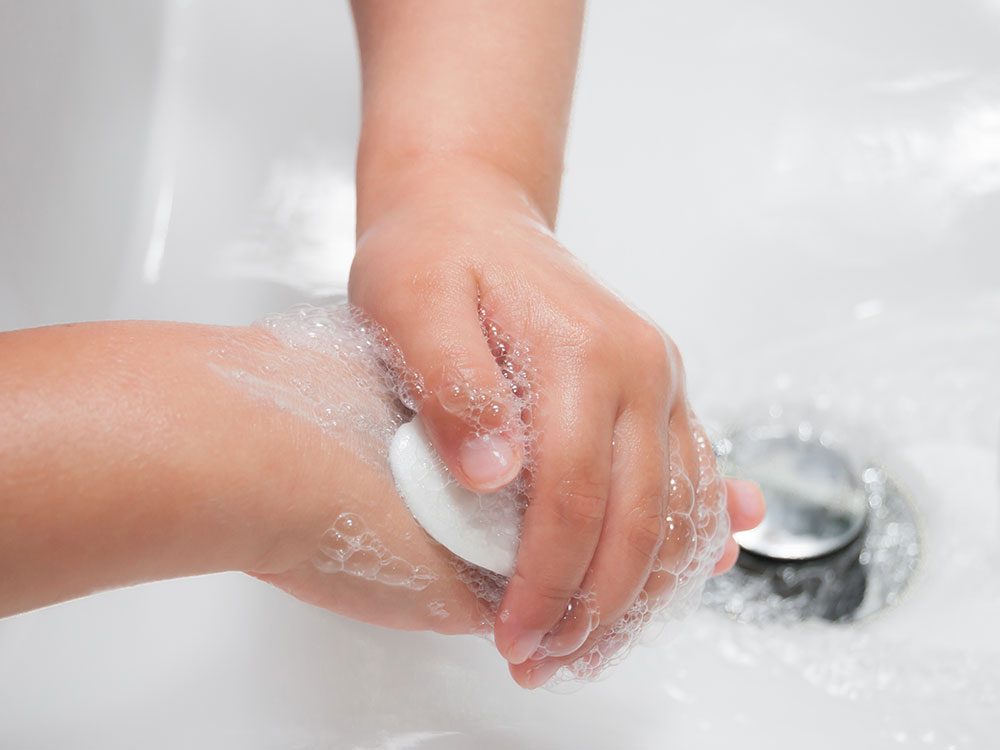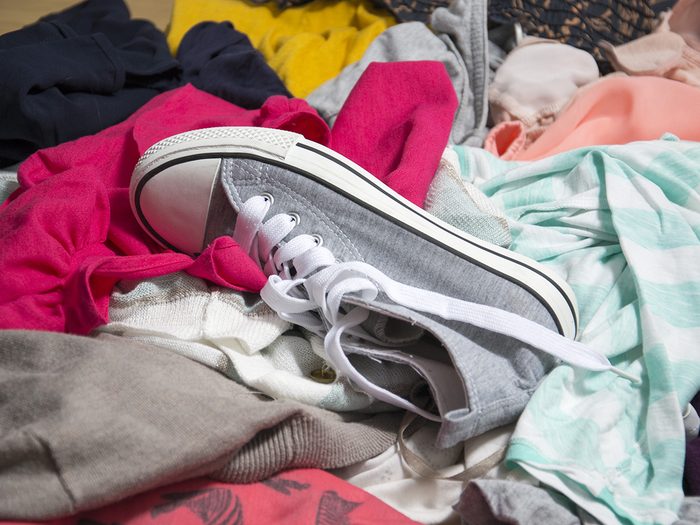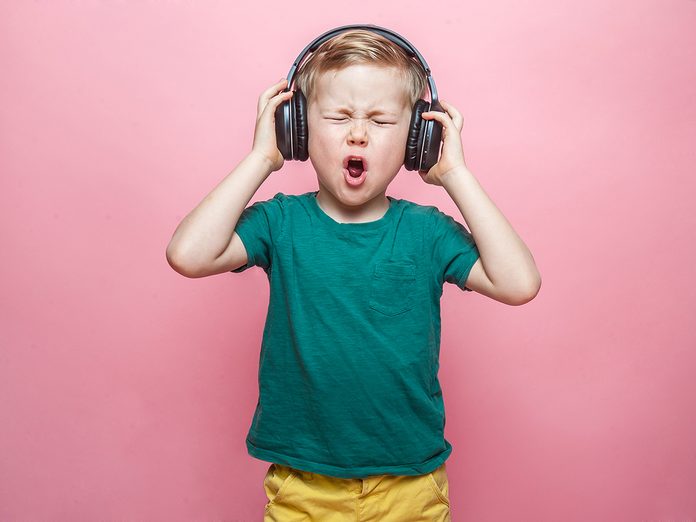“Turn down your music or you’ll go deaf!”
When your mom told you to dial down the volume, she actually had a good point.
Although you may not actually go deaf from listening to Beyoncé’s latest track at full blast, it can result in hearing loss. According to Health Canada, noise-induced hearing loss—classified as temporary or permanent damage to hearing—is increasingly common in teens and young adults. The cause? Daily exposure to noises above 85 A-weighted decibels, such as loud music, lawnmowers, table saws, and music concerts, all of which can easily exceed this noise level for a sustained period.
“If you’re going to a loud concert, consider wearing earplugs,” advises Michelle Morros, MD, a family doctor and assistant professor in the Department of Family Medicine and Dentistry at the University of Alberta. Her advice for personal audio devices? “If someone beside you can hear the music from your earphones, it’s probably too loud.”

“Don’t forget to floss!”
Flossing might seem like a major pain, but your mom was on to something when she insisted this was an important step in your nightly routine. According to the Canadian Dental Association, if you don’t floss, you miss cleaning more than a third of each tooth surface that can’t be reached with a toothbrush. Those surfaces can become a haven for icky bacteria and subsequently, plaque—the main cause of gum disease. If you leave plaque on your pearly whites for as little as 24 hours it can harden into tartar, which can only be removed by a dentist. Gum disease, if left untreated, can lead to tooth loss, and is associated with heart disease and diabetes. So, yeah. Thanks mom!
Find out the signs of disease your teeth can reveal.

“Take off your shoes at the door!”
Besides making a mess of clean floors, wearing your shoes indoors can track in bacteria that are invisible to the naked eye. Studies show that shoes can carry spores of Clostridium difficile (better known as “C. difficile”), which are resistant to many household cleaning products and can cause anything from diarrhea to life-threatening infections. In one study, shoe bottoms had a higher percent of positive samples for these bacteria than the surfaces of toilets. Further studies show that shoes can track in potentially harmful E. coli from fecal matter and meningitis bacteria. If that doesn’t make you want to kick off your shoes at the door like your mama told you, we don’t know what will.
Here are more everyday items that are dirtier than a toilet seat.

“Eat your veggies.”
Were you forced to remain at the table until you cleared your plate of every last Brussels sprout? Well, we can thank mom for enforcing that house rule, too. In addition to all of the nutritional benefits that come from noshing on a rainbow of vegetables, such as a reduced risk of cancer, diabetes and heart disease, a study published in the journal Health Education Research suggests that starting healthy eating habits at a young age could influence your weight and health for the rest of your life. And where do those healthy eating habits come from? You guessed it: Mom. According to a study published in the Canadian Journal of Dietetic Practice and Research, parents reinforce the development of healthy eating patterns and children learn about food by observing the eating behaviours modelled by others.

“Wash your hands before dinner.”
Thorough hand washing isn’t just a matter of pre-dinner etiquette. It turns out lathering up is actually one of your best defences against a whole host of contagious conditions. According to the U.S. Centers for Disease Control, properly washing your hands with soap and water can prevent 20 percent of respiratory infections and 30 percent of diarrhea-related illnesses.
This is the most hygienic way to dry your hands.

“Turn off that TV and go play outside!”
While you might have gotten into some battles with your mother about missing out on after-school specials, tuning out is a great way to tune in—to yourself. Studies also show that spending time in nature reduces stress levels, helps improve self-esteem, can increase concentration and generally improve mental health, especially in children. Besides soaking up some natural disease-fighting Vitamin D from the sun, the Harvard Health Letter notes that you’re also likely to get more exercise if you spend time outside.
Find out what might happen to your body when you start walking 10,000 steps a day.

“Clean your room—it looks like a pig sty.”
Cleaning up can feel like an endless chore, but keeping your space spic-and-span is a good life lesson to learn early on. For one, vacuuming, dusting and sweeping your living space reduces allergens and generally keeps your living space more hygienic. But tidying can have mental health benefits, too. According to Dr. Morros, a well-organized room can have positive effects on sleep and well-being. Backing her up, a study in the Journal of Environmental Psychology shows that living in clutter can contribute to a sense of distraction and preoccupation. The good news? At least now you can blame that bad grade in geometry on your messy surroundings.
Follow our healthy home checklist to eliminate potential hazards in every room.

“Quit slouching—unless you want to stay that way!”
Although poor posture likely won’t lead to physical deformities like your mother claimed, it can be a real pain in the neck—and other parts of the body too, says Dr. Morros. “Good posture is very important for helping reduce musculoskeletal pain,” she says. “Many patients with bad posture complain about neck pain and back pain, and it can also lead to headaches.”
Next, find out how to live to 100—and love it.
